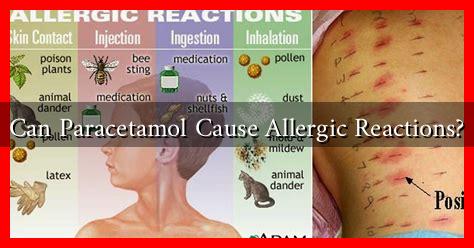-
Table of Contents
Can Paracetamol Cause Allergic Reactions?
Paracetamol, also known as acetaminophen, is one of the most widely used over-the-counter medications for pain relief and fever reduction. While it is generally considered safe when used as directed, there are growing concerns about its potential to cause allergic reactions in some individuals. This article explores the relationship between paracetamol and allergic reactions, providing insights into the mechanisms, symptoms, and case studies associated with this issue.
Understanding Paracetamol
Paracetamol is a non-opioid analgesic that works by inhibiting the production of prostaglandins in the brain, which are chemicals responsible for pain and inflammation. It is commonly used to treat conditions such as:
- Headaches
- Muscle aches
- Arthritis
- Back pain
- Fever
Despite its widespread use, some individuals report experiencing allergic reactions after taking paracetamol. Understanding the nature of these reactions is crucial for both patients and healthcare providers.
Can Paracetamol Cause Allergic Reactions?
Allergic reactions to paracetamol are rare but can occur. The symptoms of an allergic reaction can range from mild to severe and may include:
- Skin rashes or hives
- Itching
- Swelling of the face, lips, or tongue
- Difficulty breathing or wheezing
- Anaphylaxis (a severe, life-threatening reaction)
While the exact mechanism behind paracetamol-induced allergic reactions is not fully understood, it is believed that some individuals may have a hypersensitivity to the drug or its metabolites. This hypersensitivity can lead to an immune response that manifests as an allergic reaction.
Case Studies and Statistics
Several case studies have documented allergic reactions to paracetamol. For instance, a study published in the *British Journal of Clinical Pharmacology* reported a case of a 30-year-old woman who developed anaphylaxis after taking paracetamol for a headache. This case highlights the potential severity of allergic reactions, even if they are infrequent.
According to a review published in the *Journal of Allergy and Clinical Immunology*, the incidence of allergic reactions to paracetamol is estimated to be less than 1%. However, this statistic may not fully capture the number of individuals who experience non-allergic hypersensitivity reactions, which can also cause similar symptoms.
Risk Factors for Allergic Reactions
While anyone can potentially develop an allergic reaction to paracetamol, certain factors may increase the risk:
- History of allergies or asthma
- Previous allergic reactions to medications
- Genetic predisposition to drug allergies
- Concurrent use of other medications that may interact with paracetamol
Individuals with these risk factors should consult with a healthcare provider before using paracetamol, especially if they have experienced allergic reactions to other medications in the past.
What to Do If You Experience an Allergic Reaction
If you suspect that you are experiencing an allergic reaction to paracetamol, it is essential to take immediate action:
- Stop taking the medication immediately.
- Seek medical attention, especially if you experience difficulty breathing or swelling.
- Inform your healthcare provider about your reaction for proper documentation and future reference.
In severe cases, an epinephrine injection may be necessary to treat anaphylaxis.
Conclusion
While paracetamol is generally safe for most individuals, it is important to recognize that allergic reactions can occur, albeit rarely. Understanding the symptoms, risk factors, and appropriate responses to allergic reactions can help individuals use this common medication safely. If you have concerns about paracetamol or have experienced adverse reactions in the past, consult with a healthcare professional for personalized advice.
For more information on drug allergies and their management, you can visit the Australian Society of Clinical Immunology and Allergy.

